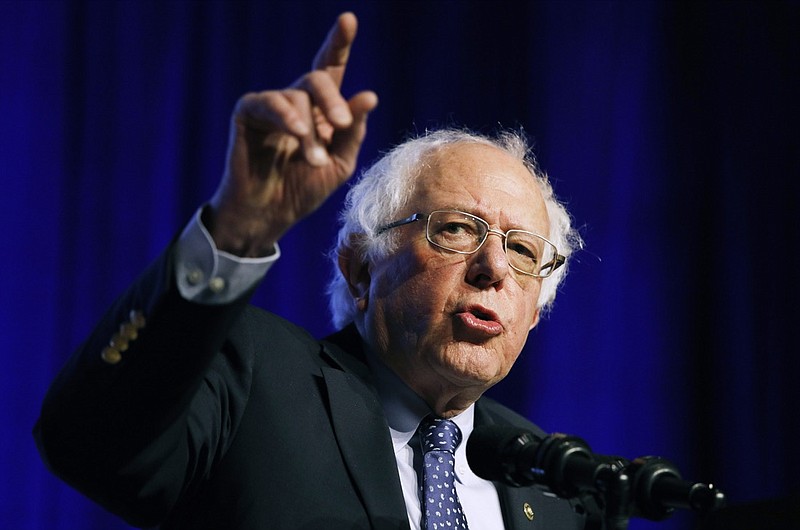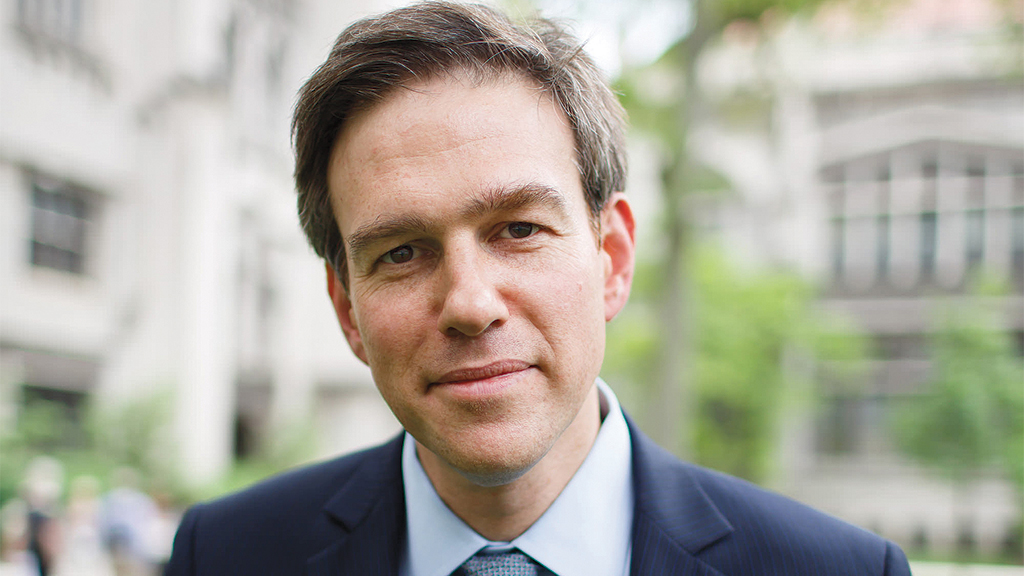"I wrote a best-selling book. If you write a best-selling book, you can be a millionaire, too." With those insouciant words, Bernie Sanders acknowledged last week that he has joined the ranks of the "millionaires and billionaires" he has vilified for most of his career.
Condolences, senator.
Sanders has plenty of company. In 2018 there were 10.23 million U.S. households with a net worth of between $1 million and $5 million, not including their primary residence. That's an increase of about 250,000 from 2017. Another 1.4 million households are worth between $5 million and $25 million, and 173,000 households are still north of that.
Nor is Sanders alone in Congress, even - or especially - among Democrats. About half of all Senate Democrats in 2018 were millionaires. That includes Virginia's Mark Warner (worth $90.2 million, according to Roll Call), Connecticut's Richard Blumenthal ($70 million) and California's Dianne Feinstein ($58.5 million).
Sanders' experience of sudden wealth ought at least to temper the hard and ugly edges of his class-war politics. Getting rich is not a form of theft. As often as not, it's the result of a service. Being rich is not a sin. Typically, it's the result of long labor, patient saving, prudent investment, gutsy risk-taking and some stroke of originality.
And becoming richer is no shame. Wealth and philanthropy tend to correlate. Of America's 10 richest people, four have given away at least $1 billion and/or 20% of their net worth to charity. In terms of charitable donations by individuals as a percentage of GDP, the United States is by far the most generous, giving $410 billion to charity in 2017.
A Sanders supporter might concede some of this, while rejoining that great wealth is inherently corrupting (and unnecessary), and that great inequality is inherently dangerous to democracy (and just plain wrong). That's the thinking that now animates the movement on the left to get rid of billionaires altogether, or at least cut them down to size with punitive taxation.
Yet it's never been clear why it's immoral to be a billionaire but not a mere millionaire - other than, perhaps, the envy that those whose income is in the 95th percentile (college professors, for instance) tend to feel toward those in the 99th (finance people).
In the U.S., billionaires don't take wealth, as Russian oligarchs, Saudi princes, or Chinese officials do. They create it. And in creating it, they create jobs, opportunities, services, choice, equity, efficiencies, and sometimes even beauty.
The idea that people can be judged as individuals based on the economic class to which they belong is one of the foulest in history, matching if not exceeding in its murderous consequences the legacies of racism and colonialism combined. When Sanders inveighs against billyinaehs (millyinaehs being presumably no longer as odious to him today as they were just a few years ago) he is engaged in a form of stereotyping that is no less bigoted, or dangerous, for being aimed at so few.
Still, I won't give up all hope that Sanders might not come to see the error of his thinking. After leaving the U.S. Senate, the late George McGovern - Sanders' precursor in many ways - decided he would try his hand in the world of business by operating an inn and restaurant in Connecticut. It didn't go so well.
"My business associates and I," he wrote in a memorable 1992 Wall Street Journal op-ed, "also lived with federal, state and local rules that were all passed with the objective of helping employees, protecting the environment, raising tax dollars for schools, protecting our customers from fire hazards, etc. While I never have doubted the worthiness of any of these goals, the concept that most often eludes legislators is: 'Can we make consumers pay the higher prices for the increased operating costs that accompany public regulation and government reporting requirements with reams of red tape.' It is a simple concern that is nonetheless often ignored by legislators."
The op-ed began with a line from Justice Felix Frankfurter: "Wisdom too often never comes, and so one ought not to reject it merely because it comes late." For McGovern, wisdom came at the price of bankruptcy. For Sanders, maybe it will come with the rewards of wealth.
The New York Times

